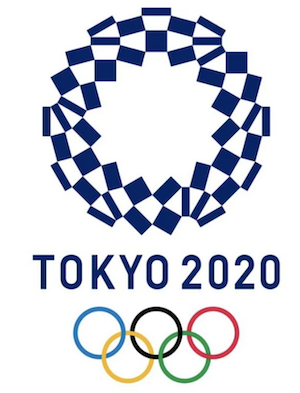Olympics coverage this year has seen new trends emerging in audience consumption.
Viewing on free to air television is down in many countries, but viewing of the rights holder’s tv content on its video platforms is up.
Don’t let anyone tell you this is the triumph of digital over television. It is television evolving into its own digital platforms. The same is happening with radio.
American and European live-to-air tv channels recorded low ratings, while digital streaming coverage showed increases.
Lee Berke, president of sports right legal form LHB Sports, Media and Entertainment told the LA Times: “The TV ratings are down more than anticipated. Between the lack of a live audience, the move to streaming and the ongoing dropouts of key competitors due to COVID, all of it seems to have a negative impact.”
A Reuters report said the Tokyo Games “are currently the least watched Olympics in recent history across Europe and in the United States. However, TV viewership is up in Australia and Japan.”
But in Australia, where several of the country’s biggest cities have been in covid lockdown during the games, tv ratings are up by about 20% on the previous Olympics, with 2.7 million viewers watching the opening ceremony, according to Channel 7
Since the opening ceremony, Australia has been doing well in the medal tally, and Aussies love to follow winning sportspeople, so the tv ratings are continuing to climb. Channel 7 coverage is on its main tv channel, its digital channels and its online video streaming platform 7Plus.
There are four main driving factors in the Channel 7’s ratings success: Being on all platforms, covid lockdowns, the Australian team’s success and the fact that Japan is in Australia’s timezone, whereas it is overnight in America and Europe.

So what about audio: live broadcast radio, streaming and podcasts?
In 2020 Australia & New Zealand sports entertainment radio network SEN secured the commercial radio rights to broadcast the games in a deal with Channel 7 and was the only Australian radio network where live coverage could be heard. Previously Australia’s national broadcaster ABC also had the non-commercial Olympics rights, but declined to take them up this year.
Australians won’t know for sure whether there has been radio ratings success for the rights holder until the end of this month, when the next GfK ratings results are released on 31 August, but there are early indicators.
Australia’s radio ratings take all platforms into account, measuring live to air broadcast listening on analog and digital radio transmissions and also on live streaming platforms, so when those ratings are released we will know whether this year’s Olympics have delivered ratings success.
Even before the results come out, there are some early indications that the Olympics have been good for radio and podcasts.
Anecdotally, all talk stations seem to be drawing strong audiences, as a factor of both Covid lockdowns and the Olympics. Even if those stations are not rights holders, they are still covering the success of the Aussie teams in their news and talk programs.
On the other hand, covid lockdowns may be negative for radio Olympics coverage because audiences often watch tv for sports results while at home but listen to the radio when they are on the move to keep up to date with the latest results. With lockdowns in Sydney, and now also in Melbourne, there will be less movement of people during working hours.

So what is expected with the rights holder SEN?
SEN has made a big commitment to Olympics coverage across all platforms, with eight simultaneous radio channels and expert coverage in most programs continuing until the closing ceremony this Sunday, 8 August.
Three ‘always on’ channels from the 7 network are running on the SEN app.
The station is broadcasting commentary and calls from the Seven commentary team in Tokyo between 10am to 3 pm daily and national coverage of the finals each night from 6pm.
SEN is expected to release complete audience information at the conclusion of the Olympics, but SEN sources have given radioinfo insights into some early figures.
The network’s week on week national streaming consumption on the SEN App increased by about 46%. This augurs well for the ratings results later this month. The biggest change was in the state of New South Wales, which was in lockdown during all the Olympics, where consumption increased by 62% on the SEN 1170 stream.
The network has used app alerts to draw audience to live coverage and key moments, generating good spikes at various times. “By far the biggest spike has been in the live streaming verticals and experiencing the Games moments in real time,” according to our source. “We’ve used app alerts ahead of key moments like the 400m swimming Titmus v Ledecky final and the Kyle Chalmers 100m final to drive audience back into the platform to great effect.”
The network is experiencing commercial as well as audience success with the Olympics so far. “The Olympics has won gold in the hearts of Australians as we celebrate the incredible achievements of our athletes… this was shown through the success and increased engagement of our audiences across the SEN platforms on air, online and digitally throughout the games.”
Podcast consumption has also been good for SEN. Podcast spikes have “largely been around the interview and expert opinion.”
Podcast providers have also noticed a spike in listening to Olympics related podcasts.
Omny Studio Managing Director Sharon Taylor has been seeing “a decent amount of download activity for episodes referencing the Olympics,” however none of it is actual event coverage because the IOC are fiercely protective of the digital rights and will send take downs to broadcasters who haven’t been named an official partner.
Internationally, rights holder NBC America has been experimenting with podcasts to supplement its television coverage, with the launch of the NBC Olympics Channel on Apple Podcasts
Acast’s Content Director for Australia and NZ Guy Scott-Wilson has told radioinfo that he is seeing a spike in Olympics related podcasts as well as daily news podcasts as part of the wider trend of increasing podcast consumption.
“There’s no doubt that people are changing their behaviour when it comes to how and when they consume news and entertainment content… podcast consumption has seen exponential growth… 44% of respondents are listening to podcasts more frequently than they did 12 months ago and 56% intend to listen even more in the future.
“This year, the trend has continued with people choosing to consume news and sport content via podcasts, particularly around high profile sporting events such as the Olympic Games. Most recently, in Australia we have seen listener numbers for dedicated sports podcasts increase whilst the Olympics have been on. For example, Sport Today, which is part of the Acast Creator Network, has seen a 36% increase in listens between July 19 (one week prior to the Olympics) and August 2 (one week into the Olympics).
“Listener interest in this content has also seen daily news podcasts such as The Daily Aus embracing the Olympics, adapting their formats and dropping additional episodes to cover the action.”
Around the world, radio rights holders will be closely examining the audience research on their Olympics coverage across all platforms to determine its success.
Australia is experiencing more people turning to podcasts for news and sports content. These types of podcasts are often short, snappy and designed to bring listeners up to speed in an easy-to-digest way – and this really lends itself to the medium of podcasting.”
Innovative audio offerings for big world events such as the Olympics is an important factor important in driving audiences to new ways of consuming live radio and audio. They do benefit radio broadcasters and podcasters.
As usual, radioinfo will continue to analyse these trends for broadcasters and advertisers as more information about Olympics media consumption becomes available.
The delayed 2020 Olympics ran from 23 July – 8 Aug 2021.

